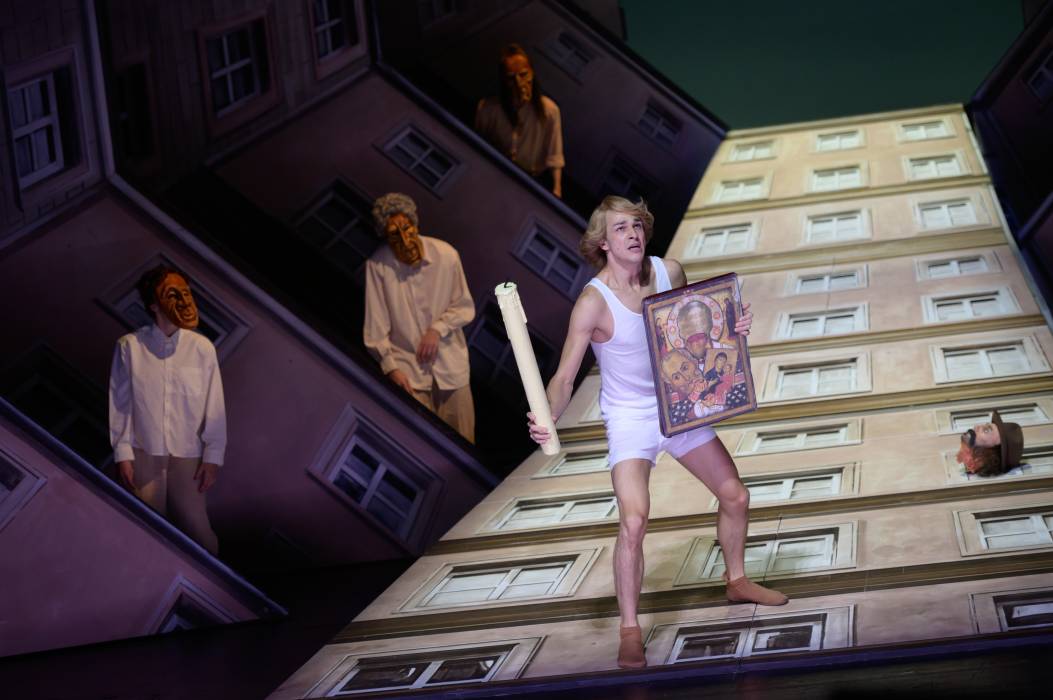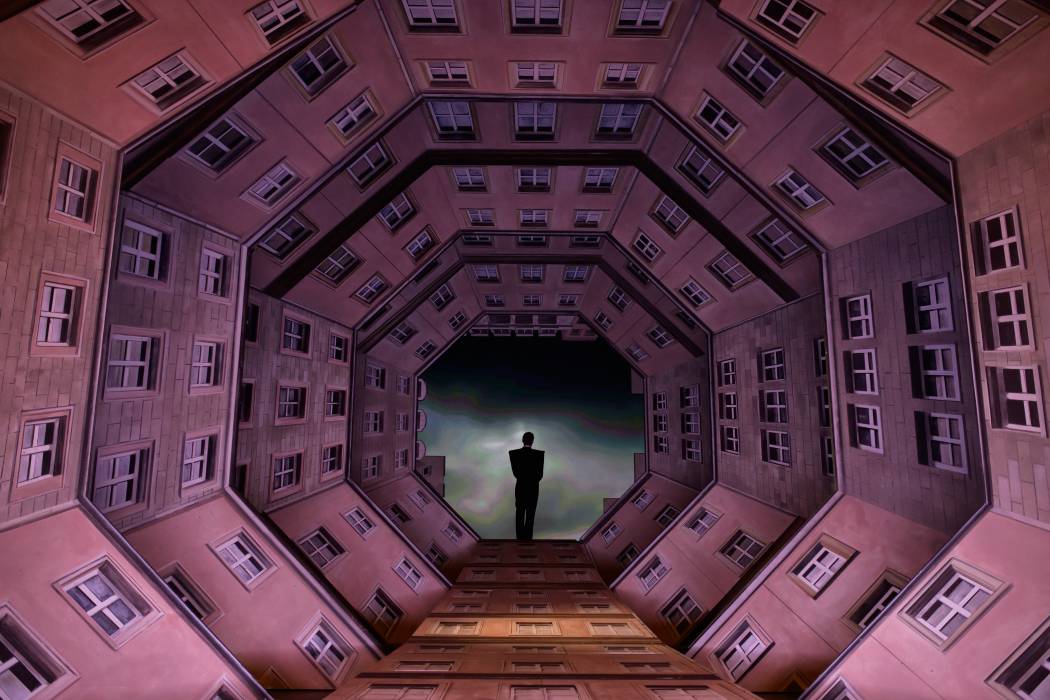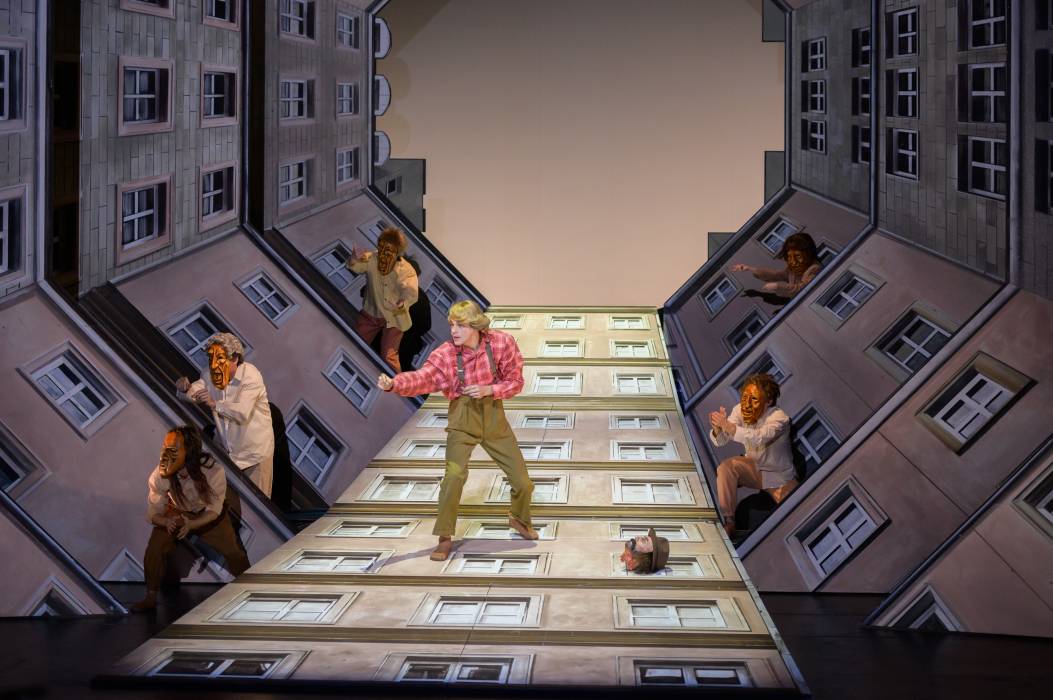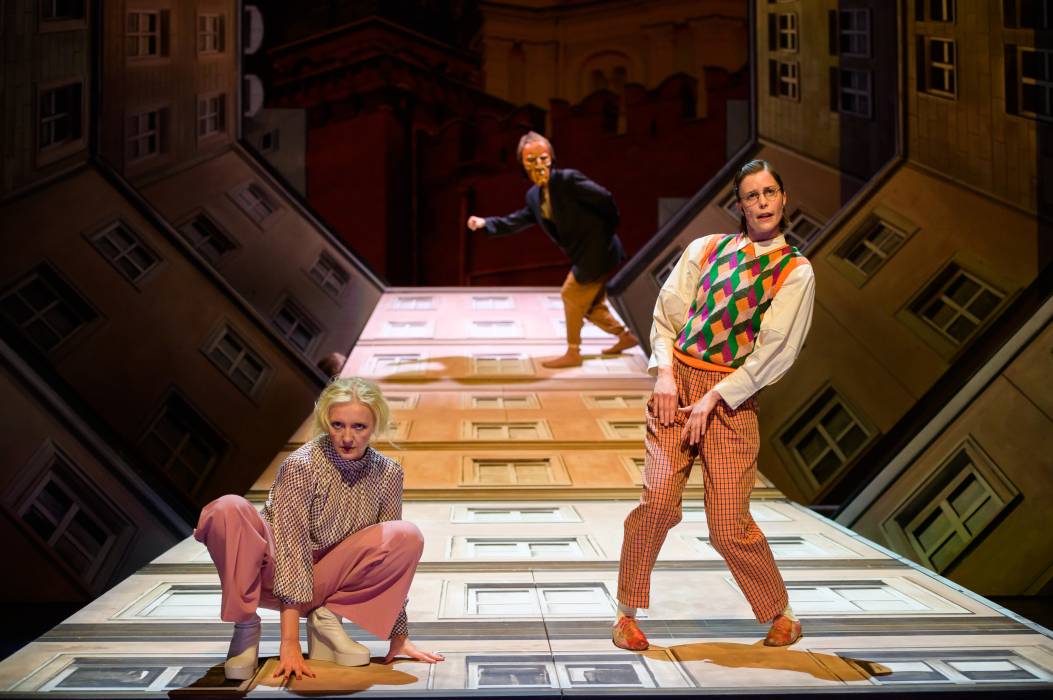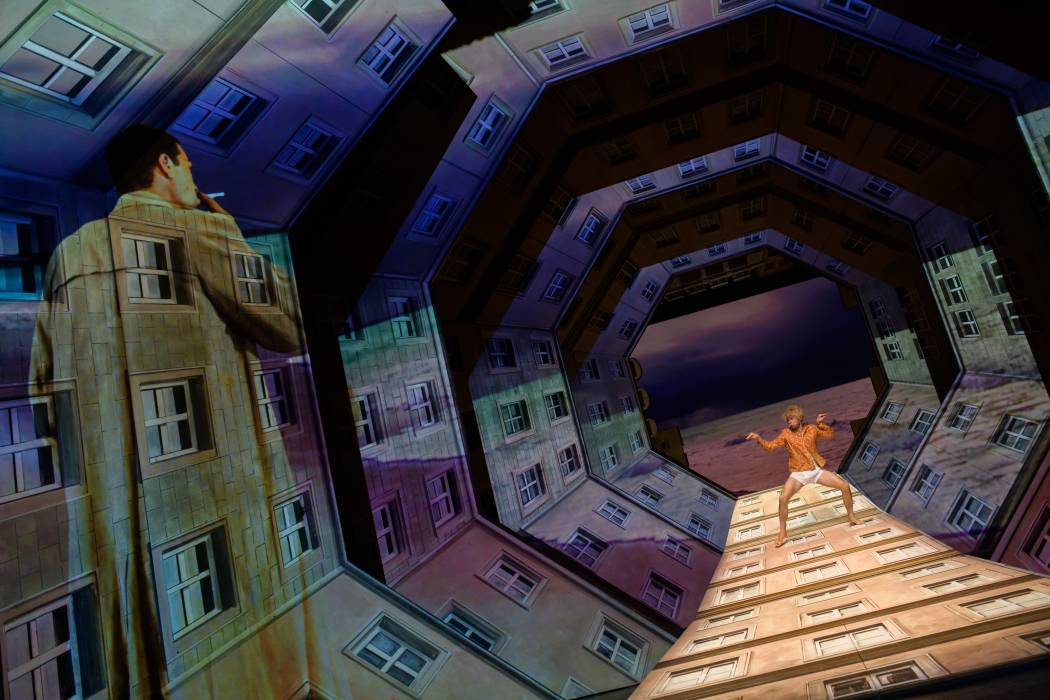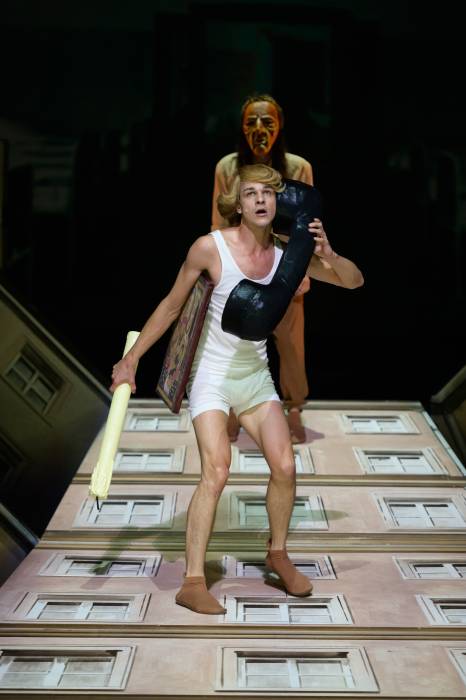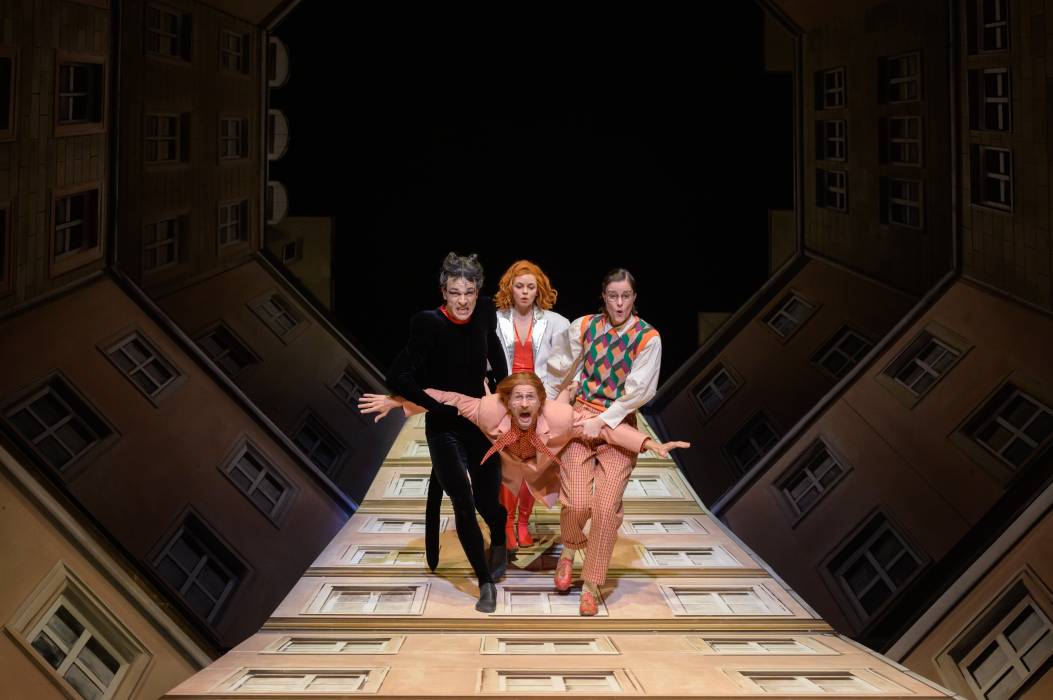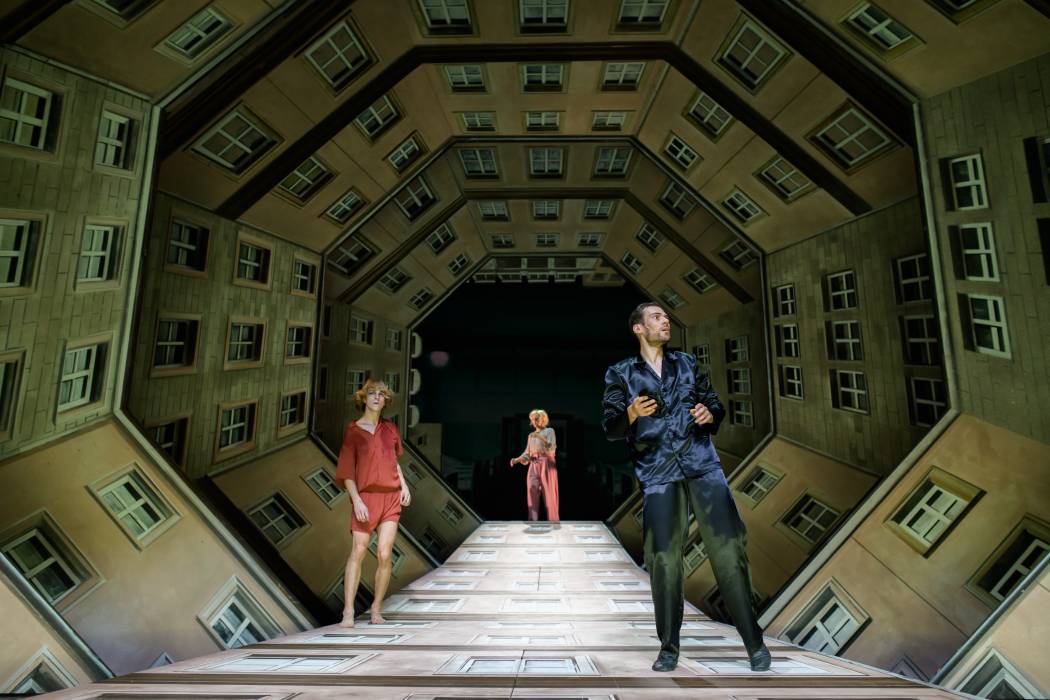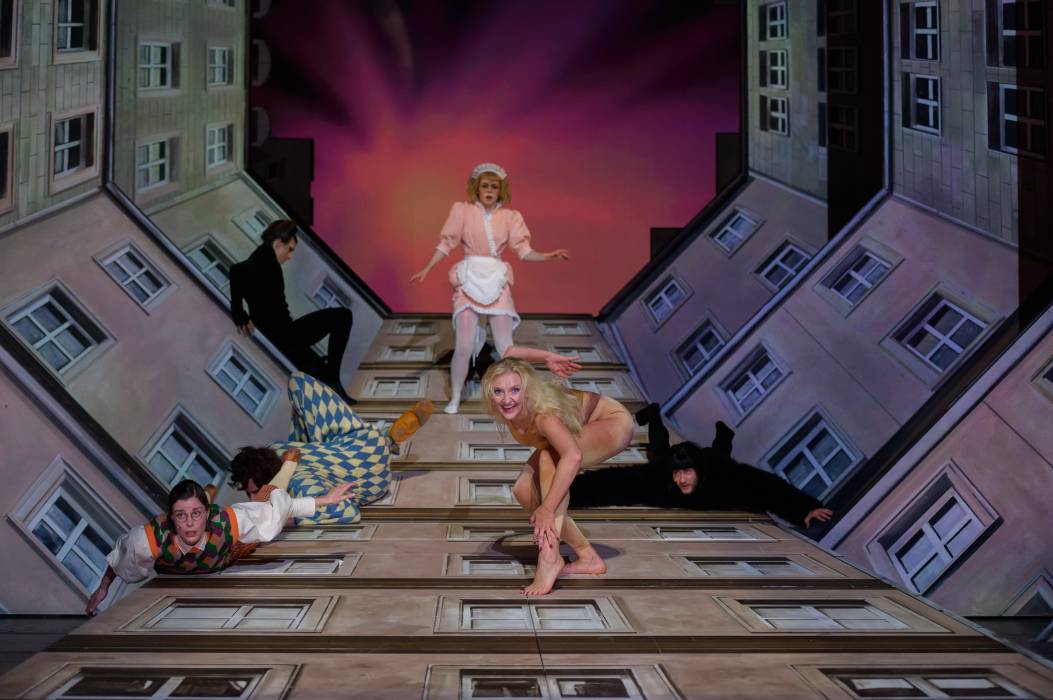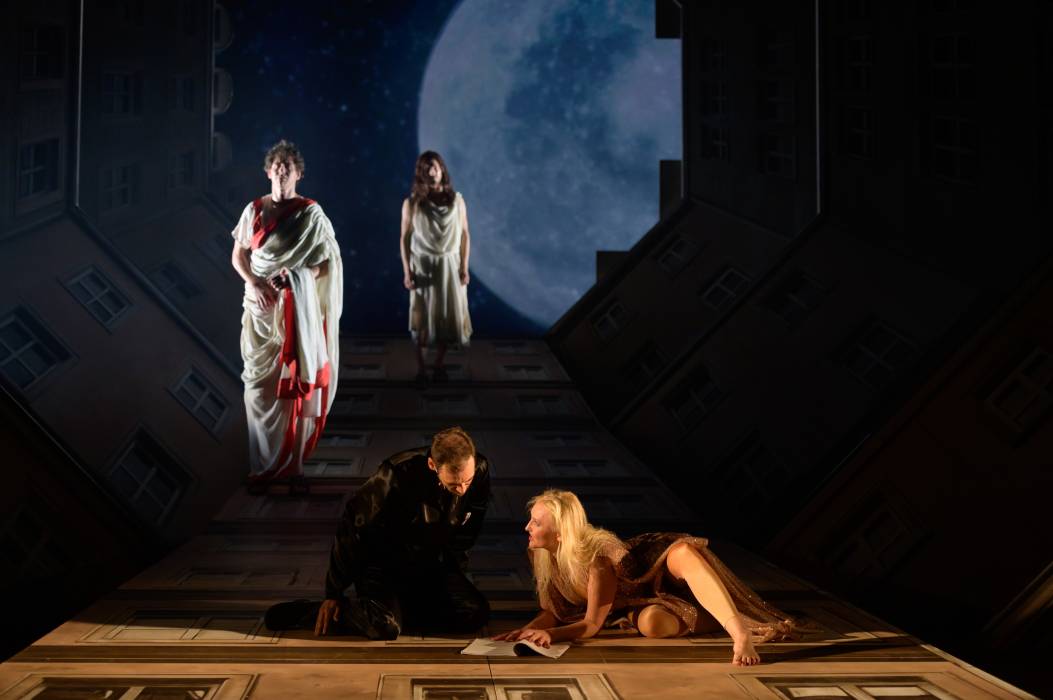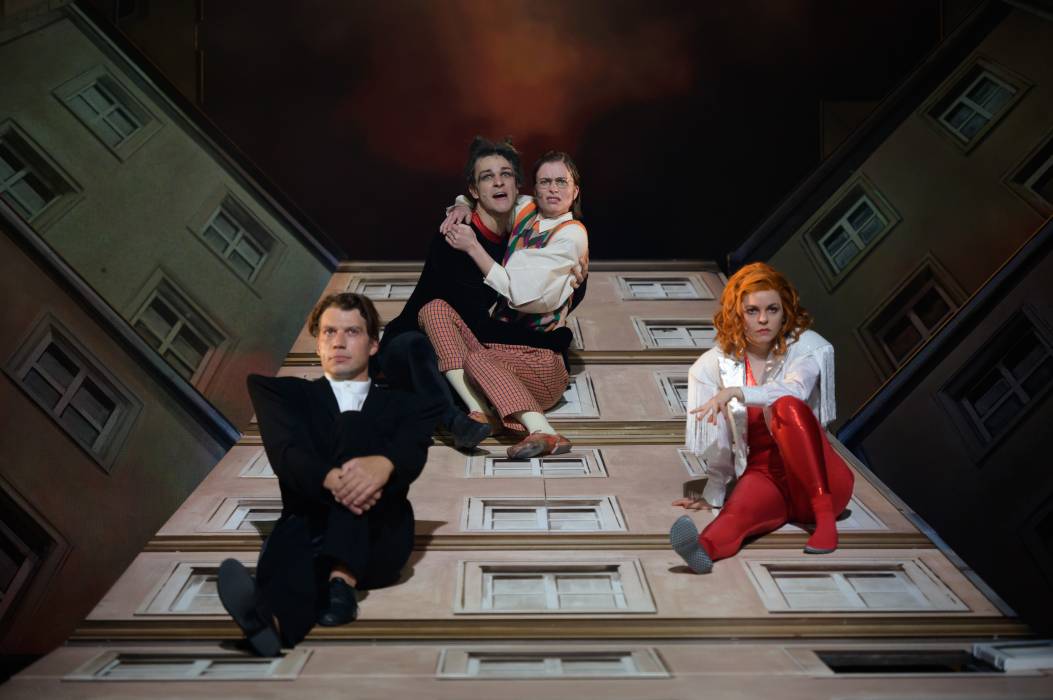»Wie Luise Voigt den gerne ins Epische gezogenen Stoff in diese optische Täuschung einstürzender Altbauten hinein entkernt, ihn zu einem klugen, farbenfrohen, rasanten Geschichts-Comic umformt, ist spektakulär. (…) Der leichte, flapsige Umgang mit dem Romanstoff beschädigt ihn nicht, im Gegenteil, er wirkt wie eine Befreiung des Theaters aus der Diskursfalle, die auch in diesem Thema steckt. (…) Das ist, pathetisch gesagt, Kunst, die Denkräume öffnet, was diese Inszenierung – neben der rein formal außerordentlichen künstlerischen Qualität – auszeichnet. (…) Nicht zu vergessen das Ensemble auf der Bühne. Der Spaß am Spiel ist unübersehbar, die Verausgabung unüberhörbar. Atemlos tanzen und rennen und klettern sie durch den Hinterhof oder fliegen, wie Dascha Trautwein als Margarita, über die Stadt. Ohne den Boden zu verlassen. Dabei Bulgakows Texte sprechend. Großes Schauspiel!«
(nachtKritik.de, 8.10.2022, Matthias Schmidt)
Lesen Sie hier die ganze Rezension.
»Das energische Komödiantenensemble bereitet uns großes Vergnügen. Es greift zu Mitteln des Erzähltheaters, des Maskentheaters und des minimalistischen Tanztheaters mit Elementen des japanischen Butoh, worin sich von nackter Angst regierte Traumata ausdrücken. (W)o der Staat die Wahrheit pachtet, braucht es visionäre Gegenwelten. Bulgakow ließ sie den Erzähler seiner unglaublichen Geschichte als ›Autor dieser wahren Zeilen‹ erfinden. In Weimar fällt diese Rolle der Regisseurin Luise Voigt zu. Darin treiben Isabel Tetzner (Korowjew), Fabian Hagen (Katzenmensch Behemoth) und Annelie Korn (Hexe Gella) als Volands lustiges Trio Infernale derben Spaß, wickelt sich Dascha Trautweins Margarita aus dem psychosomatischen Korsett, taumelt Marcus Horns als neben sich stehender Meister auf eine utopische Idee von Freiheit zu.«
(Thüringer Allgemeine, 10.10.2022, Michael Helbing)
- Luise Voigt (Regie)
- Natascha von Steiger (Bühne)
- Maria Strauch (Kostüme)
- Frederik Werth (Musik)
- Tony De Maeyer (Choreografie)
- Stefan Bischoff (Video)
- Eva Bormann (Dramaturgie)
- Marcus Horn (Meister, Michail Alexandrowitsch Berlioz, Stepan Bogdanowitsch Lichodejew)
- Dascha Trautwein (Margarita Nikolajewna, Eine gelangweilte Frau, Postbotin)
- Krunoslav Šebrek (Voland, Raucher in Jalta)
- Isabel Tetzner (Korowjew)
- Katharina Hackhausen (Gella, Natascha, Frieda)
- Martin Esser (Pontius Pilatus, Grigori Danilowitsch Rimski, Latunski)
- Janus Torp (Jeschua Ha-Nozri, Rjuchin, Iwan Saweljewitsch Warenucha)
- Fabian Hagen (Behemoth, Iwan Nikolajewitsch Besdomny)
- Martin Esser / Fabian Hagen / Marcus Horn / Annelie Korn / Isabel Tetzner / Janus Torp / Dascha Trautwein / Katharina Hackhausen (Bürger*innen, Arzt, Gäste im Schriftstellerhaus, auf der Beerdigung und auf dem Satansball, Chor)
